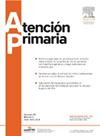伊比利亚美洲的家庭医学:现象学研究中的声音、感觉和专业身份
IF 1.6
4区 医学
Q2 MEDICINE, GENERAL & INTERNAL
引用次数: 0
摘要
家庭医学在为个人和家庭提供持续和全面的护理,解决整个生命过程中身体和情感健康方面的问题方面至关重要。目的分析伊比利亚-美洲家庭医学的演变及其与专科医生和实习医生职业认同的关系。用现象学方法和解释-解释的视角进行定性研究。伊比利亚美洲:西班牙、墨西哥、哥斯达黎加、哥伦比亚、古巴、秘鲁、智利、阿根廷、乌拉圭、巴西和巴拉圭。12位伊比利亚-美洲家庭医学领域的领导者,受过研究生培训并具有丰富的专业经验。通过有目的的抽样选择参与者,直到达到数据饱和。方法采用半结构化访谈法,并辅以文献综述。采用ATLAS进行数据分析。第24版,应用系统编码和三角测量来验证发现。结果受访者强调,家庭医学出现于20世纪50年代,是对全科、整体和预防专业需求的回应。确定的关键要素包括以个人和家庭为中心的护理、护理的连续性、全面性、持续培训以及与其他学科的合作。职业认同是在实习期间建立的,并通过实践和教学得到强化。为今后的研究确定了100多个分析类别。结论家庭医学是伊比利亚美洲初级卫生保健的基石。尽管卫生系统改革和政策带来了挑战,但在培训、护理公平和巩固职业身份方面取得了重大进展。该专业的未来以数字集成、跨专业协作和护理的人性化为标志,为致力于社区卫生的适应性强的医生做好准备。本文章由计算机程序翻译,如有差异,请以英文原文为准。
La Medicina Familiar en Iberoamérica: voces, sentidos e identidad profesional desde un estudio fenomenológico
Introduction
Family medicine has been essential in providing continuous and holistic care to individuals and families, addressing both physical and emotional aspects of health throughout the life course.
Objective
To analyze the evolution of family medicine in Ibero-America and its relationship with the professional identity of specialist and trainee physicians.
Design
Qualitative study with a phenomenological approach and an interpretive-explanatory perspective.
Setting
Ibero-America: Spain, Mexico, Costa Rica, Colombia, Cuba, Peru, Chile, Argentina, Uruguay, Brazil, and Paraguay.
Participants
Twelve Ibero-American leaders in family medicine with posgraduate training and extensive professional experience. Participants were selected through purposive sampling until data saturation was reached.
Methods
Semi-structured interviews were conducted and complemented with bibliographic review. Data analysis was performed using ATLAS.ti version 24, applying systematic coding and triangulation to validate the findings.
Results
Interviewees highlighted that family medicine emerged in the 1950s as a response to the need for a generalist, holistic, and preventive specialty. Key elements identified include person- and family-centered care, continuity of care, comprehensiveness, ongoing training, and collaboration with other disciplines. Professional identity is built during residency and strengthened through practice and teaching. Over 100 analytical categories were identified for future research.
Conclusions
Family medicine represents a cornerstone of primary health care in Ibero-America. Despite challenges posed by health system reforms and policies, significant advances have been made in training, equity in care, and consolidation of professional identity. The future of the specialty is marked by digital integration, interprofessional collaboration, and the humanization of care, preparing adaptable physicians committed to community health.
求助全文
通过发布文献求助,成功后即可免费获取论文全文。
去求助
来源期刊

Atencion Primaria
医学-医学:内科
CiteScore
2.90
自引率
8.00%
发文量
156
审稿时长
33 days
期刊介绍:
Atención Primaria es una revista que publica trabajos de investigación relativos al ámbito de la atención primaria de salud. Desde el punto de vista conceptual, Atención Primaria asume el nuevo modelo de atención primaria de salud, orientado no sólo a la curación de la enfermedad, sino también a su prevención y a la promoción de la salud, tanto en el plano individual como en el de la familia y la comunidad. En estos nuevos aspectos que definen el modelo de atención primaria de salud es en los que se centran los trabajos de investigación que publica Atención Primaria, la primera revista de originales española creada para recoger y difundir la producción científica realizada desde los centros de atención primaria de salud sobre cuestiones como protocolización de la asistencia, programas de prevención, seguimiento y control de pacientes crónicos, organización y gestión de la asistencia primaria, entre otros.
 求助内容:
求助内容: 应助结果提醒方式:
应助结果提醒方式:


